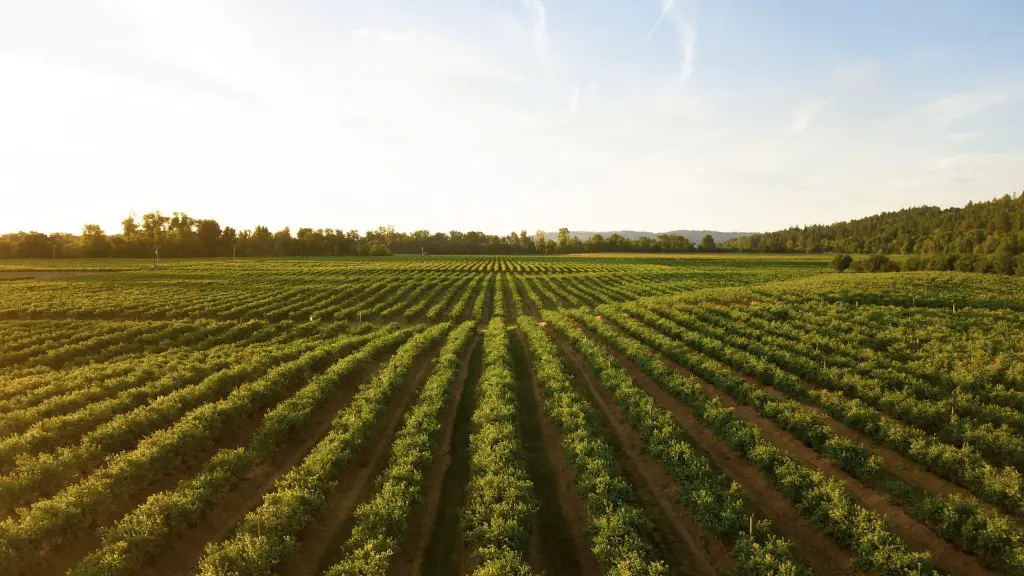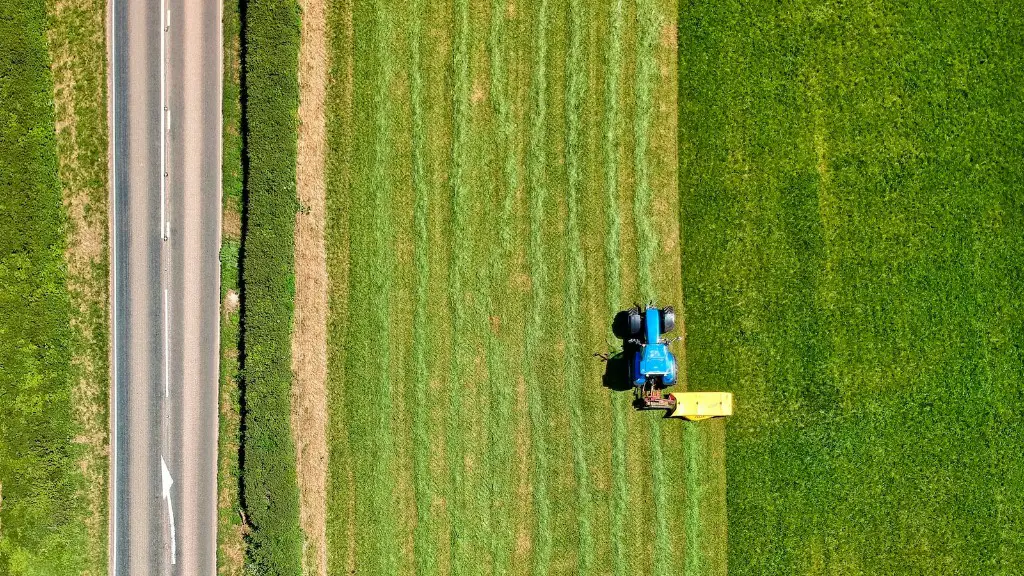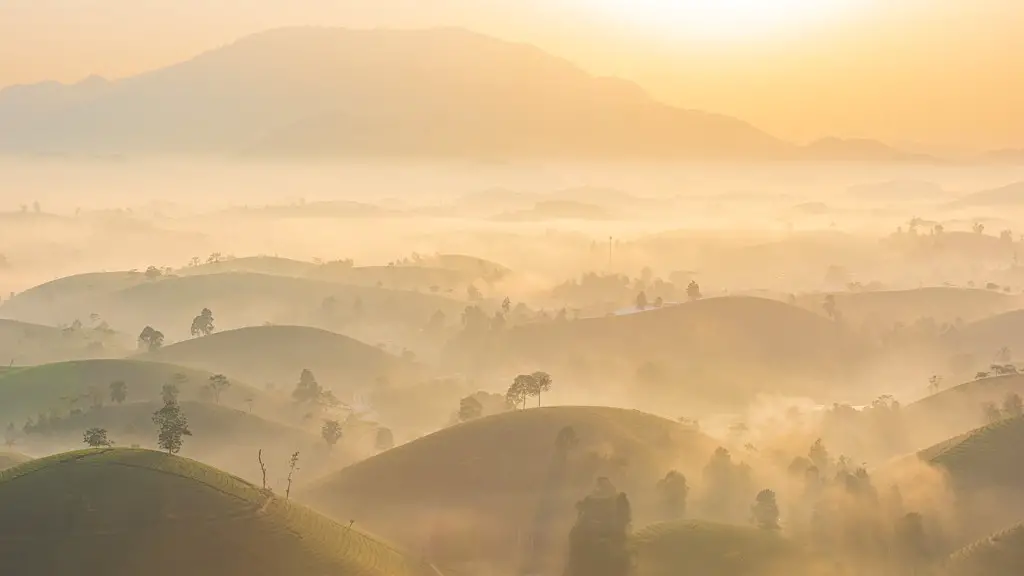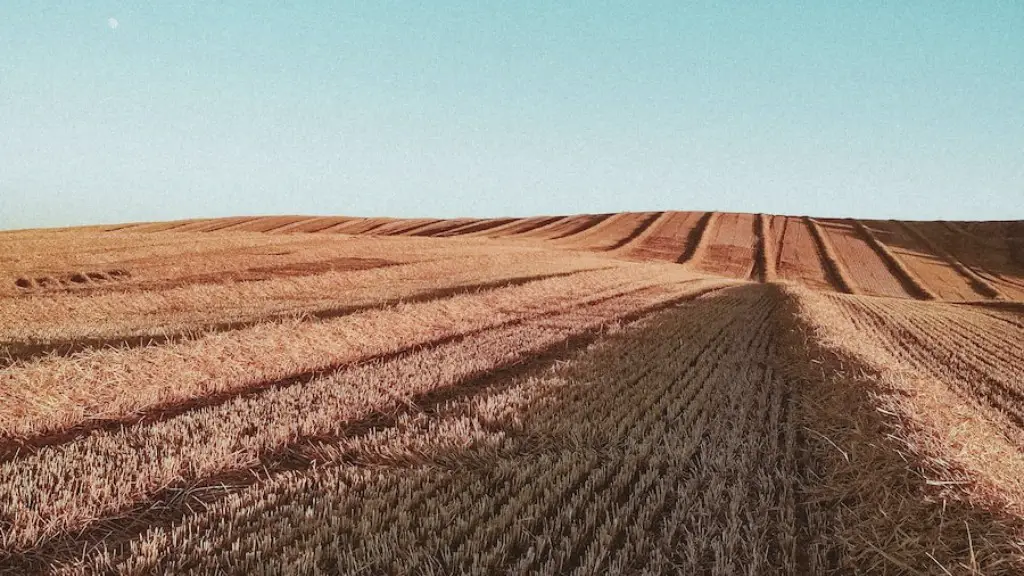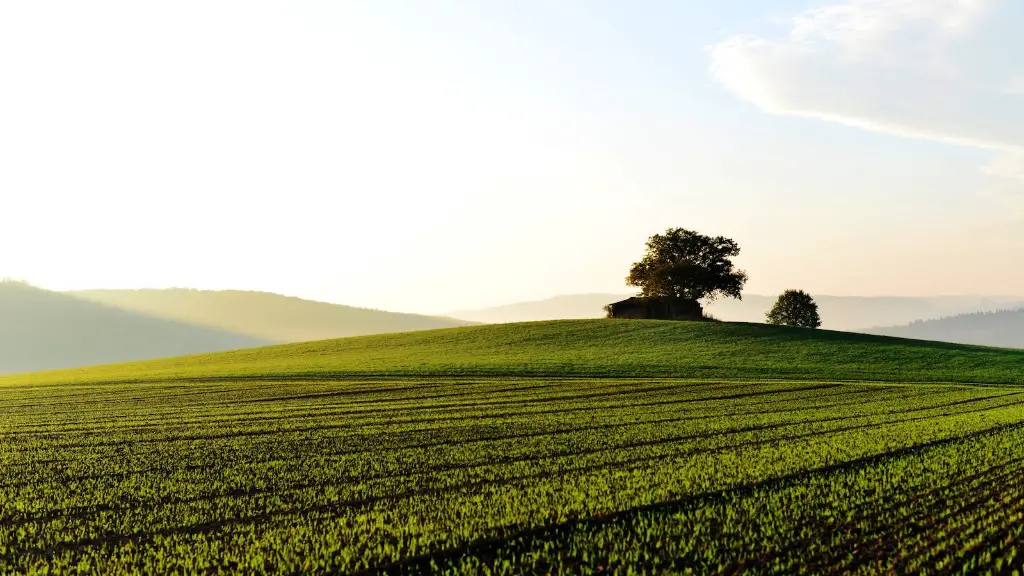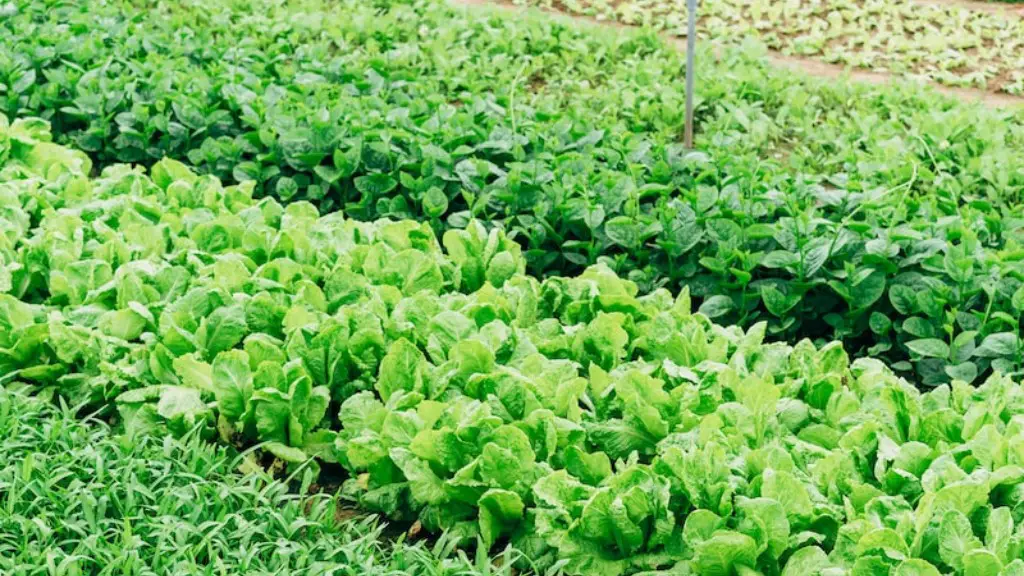South Africa is a country with a strong agricultural heritage and a diverse range of agricultural products. Agriculture is an important sector of the economy, contributing to employment, food security, and rural development. The country has a well-developed infrastructure and services supporting the agricultural sector. In addition, South Africa has a relatively high level of agricultural productivity and is a major exporter of agricultural products.
Agriculture is important in South Africa because it is one of the country’s main industries. Agriculture accounts for about 10% of South Africa’s GDP and employs about 14% of the workforce. Agriculture is also a major source of export earnings, with agricultural products making up about 15% of South Africa’s total exports.
What are 3 reasons why agriculture is important?
1. Agriculture is the main source of raw materials for industries.
2. Agriculture is important to international trade.
3. Agriculture plays a big role in a nation’s revenue.
4. Agriculture provides employment.
5. Agriculture is crucial to a country’s development.
6. Agriculture can help heal the environment.
7. Agriculture goes hand-in-hand with war.
8. Agriculture is a vital part of the economy.
Agriculture is the mainstay of the African economy and continues to be crucial for economic growth in most African countries. The rural areas where agriculture is the mainstay of the population support some 70-80 percent of the total population, including 70 percent of the continent’s extreme poor and undernourished. Agriculture is therefore key to reducing poverty and hunger in Africa.
What is agriculture’s contribution to the South African economy
In 2021, agriculture had contributed around 247 percent to the GDP of South Africa, whereas industry and services had contributed 245 and 6302 percent of the total value added, respectively. The sectoral composition of GDP indicates that the South African economy is still largely dependent on agriculture, even though the sector has been declining in importance over the years. The value added by agriculture has been decreasing as a share of GDP from 542 percent in 1970 to 247 percent in 2021. The value added by industry has also been declining, but at a slower rate, from a peak of 41 percent in 1980 to 245 percent in 2021. The service sector has been the main driver of growth in the economy, growing from a share of 20 percent of GDP in 1970 to 6302 percent in 2021.
South Africa has a more modern, productive, and diverse agricultural economy compared to the rest of Africa. This is due to the country’s higher levels of education and technology, as well as its more developed infrastructure. South Africa’s agricultural sector contributes significantly to the country’s GDP and employs a large number of people. The sector is also a major exporter of agricultural products.
What are the main benefits of agriculture?
Agriculture is essential for human survival as it provides the raw materials for food, shelter, and clothing. Without agriculture, we would not have the crops for food, the silk for cloth, or the wood for shelter. Agriculture is the foundation of human civilization and we cannot survive without it.
Farming is a great way to improve your health and well-being. It is challenging and stimulating work that provides a source of income in rural areas. Farm work also helps develop younger generations. Farming can help the environment thrive.
Why is agriculture the backbone of Africa?
The agricultural economy in Africa is vital to the continent’s economy and employs a large percentage of the workforce. Agriculture typically contributes a significant portion of GDP and is the main economic activity for many of the continent’s poor rural residents. Increasing productivity and efficiency in the agricultural sector is essential for reducing poverty and boosting economic growth in Africa.
In the early years, the introduction of agriculture had several impacts on African societies. It helped them to living in larger and more permanent settlements, led to a significant increase in population, and resulted in the development of sophisticated tools, such as the stone axe. Agriculture also allowed for the growth of settled societies, which in turn led to the development of new and complex social structures.
How much of South Africa is used for agriculture
There are approximately 32,000 commercial farmers in South Africa. They produce 80% of the country’s agricultural value. However, only 12% of the land in South Africa is suitable for rain-fed crop production. The rest is suitable for livestock grazing.
The agricultural sector in South Africa is highly diversified, with the production of all major grains (except rice), oil seeds, deciduous and subtropical fruits, sugar, citrus, wine, most vegetables, cattle, dairy, pigs, sheep, broilers, ostriches and eggs. This sector provides employment for a large number of people, and contributes significantly to the country’s economy.
Is agriculture in demand in South Africa?
It is difficult to reconcile the two sets of data, but it is worth noting that the QLFS is a survey of households, while the BFAP Employment Brief is based on enterprise data. The BFAP data is also for a different time period (2022), so it is possible that the data sets are simply not comparable.
Climate change is a major threat to agriculture in Africa. With the continent’s population projected to double by 2050, the demand for food will only grow, putting even more pressure on farmers. Climate change will make it harder to grow crops and livestock, and could lead to widespread food shortages. In addition to the direct impact on agriculture, climate change will also exacerbate water shortages, which will further stress the agricultural sector. To adapt to these challenges, African countries need to invest in climate-resilient agriculture, which will help ensure food security for the continent’s people.
Is agriculture big in South Africa
South Africa is the largest producer of maize in Africa and the tenth largest in the world
As of 2020, the country’s agricultural land amounted to over 96 million hectares, representing almost 80 percent of the total land area.
Maize, sugarcane and wheat are some of the most in-demand agricultural products in South Africa. These crops are used for a variety of purposes, including food production, animal feed and biofuel production. South Africa is a major producer and exporter of these crops, and they play a vital role in the country’s economy.
Which country is best in agriculture in Africa?
South Africa and Nigeria both have large agricultural areas, with 96 and 69 million hectares respectively. However, production varies significantly between them in terms of products and volume. Nigeria is Africa’s largest producer of yams, while South Africa is the continent’s largest producer of maize. South Africa also produces more wine than any other African country.
The very poorest people in society primarily benefit from agricultural growth through increased demand for their labour. Agricultural growth increases the probability of obtaining employment, and it may also increase the salary level, thereby increasing the income that can be accrued from selling labour. This is especially beneficial for poor people who live in rural areas, where the majority of agricultural growth takes place.
Final Words
There are a few reasons why agriculture is important in South Africa. The first reason is that agriculture is the main source of food for the country. Without agriculture, there would be no food to feed the population. The second reason is that agriculture is a major source of employment in South Africa. Agriculture employs approximately 10% of the workforce in the country. The third reason is that agriculture contributes significantly to the economy of South Africa. Agriculture is responsible for approximately 2.5% of the country’s GDP.
Agriculture is important in South Africa for many reasons. It is the main source of income for many people, it provides food for the population, and it is a major contributor to the country’s economy. Agriculture is a way of life for many people in South Africa, and it plays a vital role in the country.
